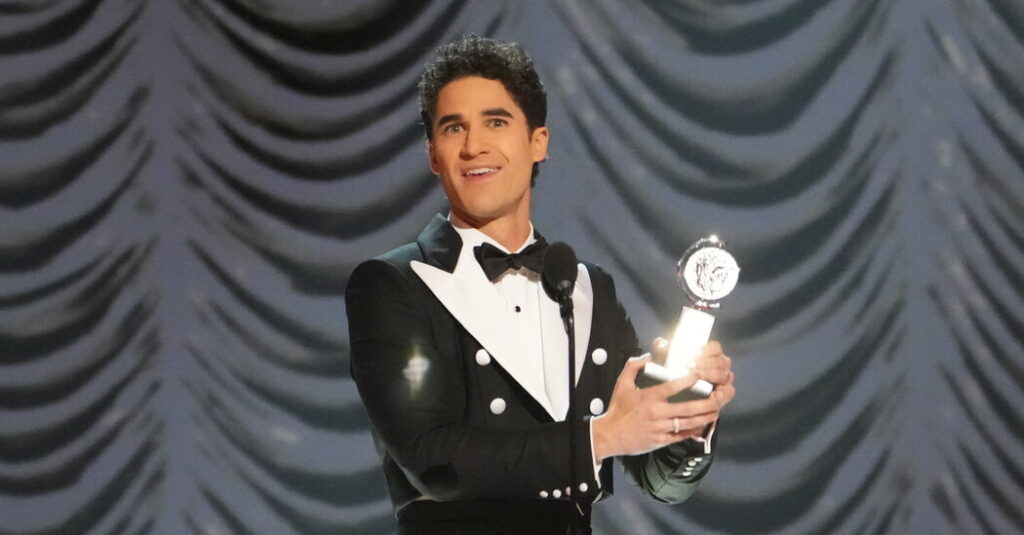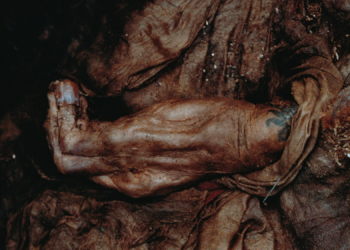It can now be hard to remember that colorblind casting was once an inflammatory proposition. Discussing a 1989 production of “The Winter’s Tale,” the white critic John Simon decreed that Black actresses like Alfre Woodard, who played Paulina, “do not belong in parts for white actresses, unless they can pass for white. That’s wrong — historically, sociologically and logically.”
Coming to the same conclusion, if from a different direction, was the Black playwright August Wilson. Positing some future all-Black production of “Death of a Salesman” in a 1996 speech, he called colorblind casting an assault on Black history and “an insult to our intelligence.”
Yesterday’s aberrance is today’s standard practice. In 2022, an actual Black-led Broadway production of “Death of a Salesman” won nothing but praise; in 2024, Audra McDonald’s interpretation of Rose in “Gypsy” turned grumblers into fans.
But the triumphal march of colorblind casting — hiring actors of any race to play roles originally designated for just one — has taken a detour this year. Amid shifting political attitudes about diversity and inclusion, two productions, a movie and a musical, resurfaced the contradictions that were always buried in the practice.
In the movie, “Hedda,” the director Nia DaCosta reimagines the heroine of Ibsen’s 1891 drama “Hedda Gabler” as a Black woman, making a case for a liberty encountered more often onstage than in film. The musical, “Maybe Happy Ending,” originally featuring an all-Asian American cast led by Darren Criss, seemed to head in the other direction when its producers announced that Criss, moving on after almost a year in the show, would be replaced by a white actor.
Criss returned to the role on Nov. 5, but the decision exposed a sore spot in the promise of nontraditional casting. It seemed to indicate that the ideals of diversity and representation inherent in the practice may sometimes crash headlong into those of freedom and universality.
Ralph B. Peña, the producing artistic director of Ma-Yi Theater Company, which commissions and produces work by Asian American and Pacific Islander writers, suggested in an interview that such casting, designed as “a corrective, to provide more opportunities to people of color for roles that are considered universal,” could even be counterproductive. “When it’s working the other way, taking away opportunities away from actors of color, it’s problematic,” he said.
The conflict came as a surprise in what seemed like a settled matter. Destiny Lilly, a casting director for film, TV and theater and president of Casting Society, the leading professional association of casting agents, said the world onstage is now much more like “the world I see around me” than when she started in the field in 2007. “Creative teams are more open to and excited to have conversations about how we can be more inclusive in our casting processes and still tell our stories,” she said.
That’s clear on Broadway, which has seen an increasing embrace of colorblind casting over the last two decades. The townspeople in “The Music Man” no less than the armies in “Macbeth” are apt to be diverse ecosystems these days. And though colorblind leading roles are scarcer, 2025 brought us a Black Betty Boop and no one blinked.
Such casting can be more divisive in movies. DaCosta’s take on Ibsen’s play — the story of a headstrong, amoral Norwegian woman who does monstrous things to protect her privilege — becomes something quite different when Hedda is the queer, illegitimate Black daughter of a white general in 1950s England. Some reviews dismissed the casting completely, one calling it a diversity, equity and inclusion gesture “to flatter progressive Hollywood’s self-righteous delusion of its superior morality.”
But others appreciated how DaCosta clarifies the typically puzzling and undermotivated character by providing her with clearer obstacles in the form of racism. Nor, in Tessa Thompson’s performance, do those obstacles need to be spelled out. We understand immediately how Hedda’s being Black informs her behavior, even though DaCosta, who declined to be interviewed for this article, deliberately never mentions race in the script.
“Maybe Happy Ending” never mentions race either. But it is less clear than in “Hedda” how the actors’ identities are meant to imprint on their roles — an uncertainty that was at the heart of the outcry over the announcement of Criss’s replacement by the white actor, Andrew Barth Feldman.
The recasting of leads in musicals is not usually a source of disbelief and dismay. But the critical and slowly building commercial success of “Maybe Happy Ending” had become a point of pride for Asian Americans in theater, especially actors. Set in Korea at a retirement home for obsolete “helperbots” circa 2064, it was created by a team that includes the Korean lyricist and book writer Hue Park; its all-Asian American cast was among the first in a Broadway musical.
Such casting is more than colorblind. When productions choose actors because of their identity, not despite it, it’s often called color conscious. For many theatergoers, color-conscious casting, like McDonald’s in “Gypsy,” offers a chance to see how an actor whose lived experience is different from what its author imagined can shine authentic new light into a familiar old role.
So was the choice of Feldman, announced on July 24, colorblind, color-conscious or a huge step away from both?
For the actor Deborah S. Craig, it was at first merely shocking. “I thought I read it wrong,” she said in an interview. “I just kept thinking: ‘This is a joke.’”
BD Wong, who was on the set of a documentary he is making about Asian American actors when an assistant showed him the news, says it caused “a feeling of déjà vu” to set in. “This is the 2025 version of yellowface,” he recalled in an interview, referring to the practice of white actors using makeup to appear stereotypically Asian.
In a Facebook essay on July 29, Wong wrote that the decision by the show’s producers, supported by the creative team, turned “a rare feat of representation” into a betrayal. Nearly 3,000 people added their names to the post, which did not seek Feldman’s dismissal but an “authentic, productive conversation” about the “erasure” of Asian American identity onstage.
Even so, the blowback was hot, with commenters decrying the second-guessing of artistic choices. One called it “viral cry-bullying.”
The production, which declined to comment for this article, dealt with the controversy by clarifying that Criss was merely on leave. But his return to the role hasn’t quelled the flood of feeling, because who will play Oliver next?
For Craig, who created the role of Marcy Park in “The 25th Annual Putnam County Spelling Bee” — perhaps the first Korean American character on Broadway — the answer is obvious. “The show is so distinctly set in Korea,” she says, pointing out details like the trip the main characters take to Jeju Island, the use of Korean in projected titles and even the characteristic “yellow sand” season in Seoul. To the argument offered by the show’s creative team that the setting is specific but the robots are “universal” and “ethnically undefined,” she replies, “They’re not Roombas.”
“Look, I support the writers,” she added. “They can do whatever they want. They should just know that when you make Oliver white, it changes the story.”
She means dramaturgically: Oliver, who rescues Claire as her power system fails, becomes, she says, a “white savior” figure.
Not everyone will experience it that way, just as not everyone experiences Thompson’s Hedda as illuminating. What you see, or fail to see, depends on who you are.
Indeed, Peña, the Ma-Yi producer, said that “Maybe Happy Ending” represented progress exactly because “it didn’t dwell on the fact” that it was set in Korea. “Those kinds of markers, using race and ethnicity as a big factor in the storytelling, are very limiting.”
Peña did not add his name to Wong’s letter. Even so, he is troubled by the production’s claim that a white Oliver is an extension of color-conscious casting, the way McDonald’s “Gypsy” or Thompson’s “Hedda” is.
“And what also grates is the fact that they only do this to Asian characters,” he added. “You would never see Coalhouse Walker” — the Black lead in “Ragtime” — “replaced on Broadway with a white guy.”
If universality is a goal of society — and of authors who want their works to be performable everywhere and forever — how do we square it here and now with representation? Who gets to be universal?
“The utopian idea that everyone can play anybody is nice,” Peña said, “but the material doesn’t provide that opportunity. It still has to be built, and we’re years away from that.”
Whether “Hedda” will represent a step toward that goal depends a lot on its success, which is mixed so far, even if Thompson is part of this year’s Oscars conversation.
But “Maybe Happy Ending” has proved that an Asian story with an Asian American cast can be embraced, and likely make money, on Broadway. (Box office during Feldman’s nine-week tenure was down about 14 percent from the previous nine weeks of Criss’s, but still cleared the $1 million mark each week.) A national tour will begin next fall.
Will Oliver be white? A source with direct knowledge of the decision suggested not, saying the production is unlikely to make “the same mistake” again.
Jesse Green is a culture correspondent for The Times.
The post The Debate Over Colorblind Casting Isn’t Settled After All appeared first on New York Times.




